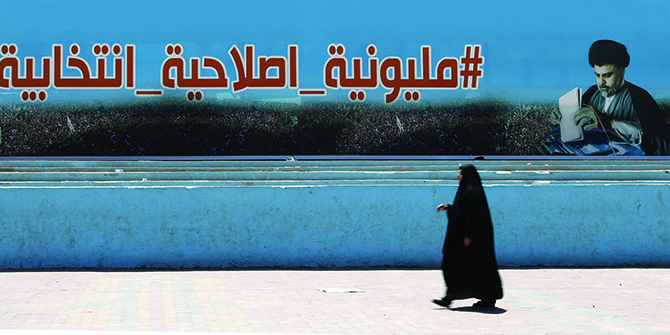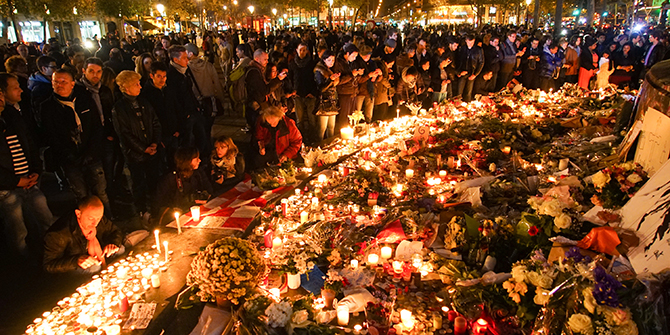by Renad Mansour and Christine van den Toorn

On 12 May 2018, Iraqis went to the polls to vote for their next parliament, prime minister and cabinet. The elections delivered a surprise, with Muqtada al-Sadr’s Saairun Coalition winning the most seats of any bloc, although not enough to form a government alone. The results also carried a number of clear messages about the state of Iraqi politics, not least the low turnout and the decision of many Iraqis to boycott the elections, reflecting a general malaise and disillusion with the current political leadership and bloated bureaucracy. The revelations of electoral fraud and the very low turnout (of 44.5 percent) indicate that it will be difficult for the political class to overcome its reputation for maintaining the status quo – and for the citizenry to accept it.
The Institute of Regional and International Studies (IRIS) at the American University of Iraq, Sulaimani (AUIS) is leading on a project examining the mobilisation strategies and results of the 2018 Iraqi elections. This project forms part of the Conflict Research Programme, funded by the UK Department for International Development. Following the elections, the Middle East Centre and IRIS jointly published a second report in a series of three. The first, published in May 2018, analysed campaign mobilisation strategies. The final report will be published after government formation. It will look at what the composition means for reform and assess political and conflict dynamics. Below are the key findings, the full report is available to download in PDF format.
Key Findings
- Low voter turnout at the 2018 Iraqi federal elections (at 44.5 percent) reflects a malaise in the overall Iraqi population and a rejection of the political class that has governed the country since 2003.
- Most Iraqis have decided that the old political elite cannot combat corruption or improve government services. They have yet to identify a new political leadership that they feel can do so.
- The top two winning coalitions, Muqtada al-Sadr’s Saairun Coalition and Hadi al-Ameri’s Fateh Alliance did well because they were perceived to be outside the system.
- The split of the historically powerful Daʿwa Party into two meant Prime Minister Haider al-Abadi’s Victory Alliance (Iʾtilaf al-Nasr) and Nouri al-Maliki’s State of Law Coalition (Iʾtilaf Dawlat al-Qanun) did less well than expected.
- Despite prior talk of post-sectarianism, most Iraqis voted along identity-based lines, but the coalitions were more cross-sectarian than in previous elections. The ability to mobilise a large portion of the Shiʿa base was key to successful election campaigns.
- Large-scale allegations of fraud marred the elections especially in the Kurdish provinces of Sulaymaniyah, Erbil and Dohuk, and the disputed territory of Kirkuk. The subsequent investigation into electoral fraud, while problematic constitutionally and tainted by political interests, is a positive trend for the democratic process in Iraq.
Renad Mansour (@renadmansour) is Research Fellow in the Middle East and North Africa Programme at Chatham House, and at IRIS. His research explores the situation of Iraq in transition and the dilemmas posed by state-building.
Christine van den Toorn (@vandentoorn) is Director of IRIS, AUIS. She has nearly fifteen years of academic and professional experience in the Middle East, nine of which have been spent in the Kurdistan Region of Iraq.







3 Comments